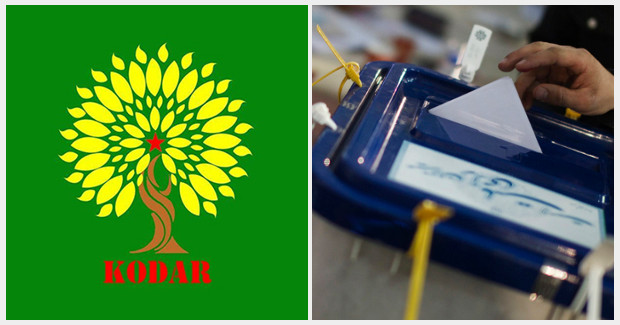
While the presidential and local council elections are approaching in Iran, the Middle East is passing through its most critical phase. The focal point of the crisis is the resistance to change and the persistence in attitudes that is the opposite of freedom, equality and true democracy. The orders which defy the process of transition to democracy would be far more susceptible to foreign interferences. Interventions do not treat deep and old wounds of the Middle East, but also bring new ones, giving rise to further crises.
Accelerating the collapse of ISIS in the Syria, the election of Donald Trump as the president of USA, and the Arabic countries and Israel being in danger of the Iran’s interventionist policies in the region, the possibility that Iran will be one of the main centers of crisis and transformation in the region increase sharply. In the meantime, the political divisions and unresolved legal issues in Iranian society provide a fertile ground for possible interventions. The mentality which believes without undertaking a real democratization process and by pushing internal challenges beyond Iran’s borders the crises would be tackled via a military-security leadership would face a deadlock.
So far, the main goal of the Islamic Republic is becoming a regional power, without the provision of democracy. It is clear that the “thirst for the development of a sphere of influence abroad” without insisting on “the development of democracy and equality within” will create an unbalanced, fragile and dangerous state. The catastrophic situation in Syria proves the necessity of solving the problems in a democratic way which includes the recognition of the rights of different nations and ethnicities in Iran such as the Kurdish people, accompanied by securing the rights of women and diverse religions and traditions.
The poor record of Rouhani’s government during the four years of his presidency in the area of civil and political rights, especially the non-fulfillment of his promises of “ethnic and religious groups’ rights”, clearly shows that government change would not serve necessarily to improve the rights and freedoms of the Iranian peoples including the Kurds. If the president diverges from to the present dominant framework he will be removed, and if he align himself with the system resilient to change, he then would not be more than a “facilitator” for the continuation of the current totalitarian system.
The East Kurdistan Democratic and Free Society (KODAR) believes that the democratization of Iranian politics and the recognition of fundamental rights of the peoples of Iran, especially the Kurds, are a better solution than an internal conflict and foreign interventions. The KODAR demands for the promotion of a “third way” strategy which is not in line with the continuation of the current disastrous situation or foreign interference, as it will improve the current conditions.
From ethical and theoretical perspectives, the KODAR prefers the democratization of politics and the recognition of Iran’s various nations’ rights, particularly that of the Kurds, rather than foreign intervention. It is also much less costly and more rational than the current adopted policy of “smile in the outside and iron fist in the inside”. The construction of a democratic nation and a democratic status regarding Iran’s framework is the purpose of KODAR as a third line strategy. The KODAR’s new model runs counter to totalitarian mentality, while it regards the participation of women and diverse ethnicities in the political spheres and decision-making processes as crucial.
The KODAR, unlike conservatives, reformists and moderates who are concerned with “how much is their share of power?” making it their priority, has designed a question on the agenda: “How much the society, religion, and women’s rights and freedoms are secured?”
It is essential for the government of Iran to take steps in the direction of “a great change” before “a great disaster” occur. Obviously, if such a change has a chance to be actualized, its symptoms should appear in the weeks before the elections.
At this critical and historical juncture, the East Kurdistan Democratic and Free Society emphasizes the strategy of “third way” and demands from both political forces involved in the elections and the Islamic Republic to start the process of democratization rather than prompting the policy of “crisis management” that plunges Iran into a disaster. Obviously, the final position of KODAR and many other change-seeking forces depend on the mental and structural preparation of the Iranian government and other establishments involved in the election to accept the KODAR’s outlined demands.
Rojhelat.info